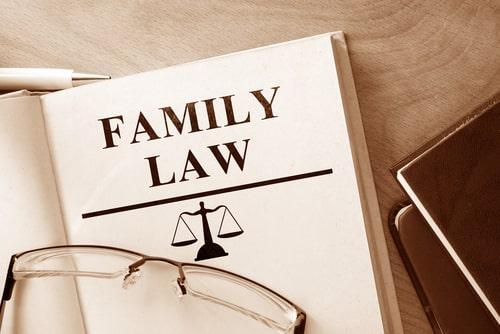 630-393-3111
630-393-3111
4200 Cantera Drive, Suite 200 | Warrenville, IL 60555
Recent Blog Posts
How is a Business Affected During a Divorce in Illinois?
 If you own a business but are considering divorce, you may wonder how the divorce will affect your business. Illinois is an equitable distribution state, which means that most assets gained during the marriage are subject to division in a divorce. This includes businesses.
If you own a business but are considering divorce, you may wonder how the divorce will affect your business. Illinois is an equitable distribution state, which means that most assets gained during the marriage are subject to division in a divorce. This includes businesses.
Here are a few things you should know when navigating a divorce with a business involved.
Businesses as Marital Property
In Illinois, a business that was owned or operated by either spouse before the marriage is usually separate property and not subject to division during the divorce. A business that was started or purchased during the marriage is treated as marital property and will be subject to division between spouses. Spouses may be able to negotiate a property division arrangement during divorce that both parties agree to. Sometimes, one spouse keeps all of the business assets and the other spouse keeps other assets such as vehicles or real estate. Others spouses divide business assets among themselves. Divorcing spouses may also decide to sell the business during divorce and split the profit or use the proceeds to pay off shared debt.
When is Guardianship Necessary?
 In some instances, guardianship can be a critical step in protecting the rights of individuals who cannot take care of themselves or make crucial decisions. Guardianship gives authority over a person’s life to another individual, often a family member or close loved one. It is essential to understand when and why guardianship may be necessary so that you can provide proper care and protection for your loved ones.
In some instances, guardianship can be a critical step in protecting the rights of individuals who cannot take care of themselves or make crucial decisions. Guardianship gives authority over a person’s life to another individual, often a family member or close loved one. It is essential to understand when and why guardianship may be necessary so that you can provide proper care and protection for your loved ones.
Health Conditions
If an individual has a medical condition that affects their ability to care for themselves, guardianship may be a good option to ensure their safety and well-being. For example, if someone has extremely poor health and cannot get out of bed, move around, or manage daily care and tasks by themselves, a guardian may be helpful.
Mental Impairment
A condition causing mental impairment, such as dementia or Alzheimer’s disease, can hinder someone’s ability to make decisions about their care and finances. This may require a legal guardian to be appointed to act on their behalf. Someone with severe, poor mental health may also require a guardian to make sound decisions for them.
Tips to Keep in Mind When Going Through a Divorce With a Business
 Divorce is never easy, but things can get even more complicated when your business is involved. Many businesses are considered martial property. This means that the business needs to be addressed during the asset division portion of the divorce. Valuing and dividing business assets is often complex and contentious. Here are four tips to keep in mind when going through a divorce in DuPage County with a business:
Divorce is never easy, but things can get even more complicated when your business is involved. Many businesses are considered martial property. This means that the business needs to be addressed during the asset division portion of the divorce. Valuing and dividing business assets is often complex and contentious. Here are four tips to keep in mind when going through a divorce in DuPage County with a business:
1. Understand the Tax Implications
Understanding how your taxes may be affected by your divorce, especially if you own a business, is essential. You may want to speak with an accountant or tax advisor to ensure you take all the necessary steps to minimize your tax burden.
2. Create a Financial Plan
Divorce brings along financial stress, and it is vital to make sure that your finances are in order. Before making any decisions, create a comprehensive financial plan and assess what assets need to be divided. This should include any investments or business interests you share with your spouse. Typically, property that a spouse acquired during a marriage is marital property. Businesses established during the marriage are considered part of the marital estate unless they are excluded through a valid premarital agreement or postnuptial agreement.
How to Prepare For a High-Asset Divorce
 Divorce is hard enough, but the process can get even more complicated when high-value assets are involved. If you are getting ready to go through a high-asset divorce, there are some steps you can take to make sure that your rights and assets are protected throughout the proceedings.
Divorce is hard enough, but the process can get even more complicated when high-value assets are involved. If you are getting ready to go through a high-asset divorce, there are some steps you can take to make sure that your rights and assets are protected throughout the proceedings.
Working with a high-asset divorce lawyer is vital to help you navigate the process and the legal jargon. However, you can benefit from preparing on your end, too.
Hire An Experienced Attorney
High-asset divorces can be highly complex, and the rules surrounding them vary from state to state, so you need a lawyer who is well-versed in your local laws. Additionally, having a legal expert on your side will help ensure that any property settlements or alimony payments are fair.
Start Gathering Documents and Records Related To Your Assets
If there are any investments, businesses, real estate, or hard-to-value assets involved in the divorce, it is a good idea to get an independent financial evaluation done. Gather income tax returns, bank statements, real estate appraisals, pension plans, and any other financial information that will help the courts determine what should be divided between both spouses.
Do You Need a Prenuptial Agreement?
 The prenuptial agreement, more commonly known as just a prenup, is a contract between spouses that both parties sign before a marriage that decides how assets will be distributed in the event of a divorce. Many people are reluctant to sign prenuptial agreements because they believe that doing so creates an impression that divorce will be more likely, but prenuptial agreements can serve many important purposes.
The prenuptial agreement, more commonly known as just a prenup, is a contract between spouses that both parties sign before a marriage that decides how assets will be distributed in the event of a divorce. Many people are reluctant to sign prenuptial agreements because they believe that doing so creates an impression that divorce will be more likely, but prenuptial agreements can serve many important purposes.
The biggest benefit to having a prenuptial agreement is that property division in a divorce can be much more streamlined and involve far less dispute. People could have many other reasons for signing prenuptial agreements, including concerns about children’s inheritance or businesses owned by one spouse.
How Prenuptial Agreements Work in Illinois
Prenuptial agreements in Illinois can cover many issues, but they cannot cover everything. A prenup can determine ownership of various forms of property, possible spousal support payments, and property ownership rights in cases of death.
Protecting Businesses During Divorces in DuPage County
 Illinois is an equitable division state when it comes to property division in a divorce, but not all assets are necessarily easy to split. When one spouse begins a business during a marriage, the company typically becomes marital property. Both spouses have a right to an equitable share of marital property.
Illinois is an equitable division state when it comes to property division in a divorce, but not all assets are necessarily easy to split. When one spouse begins a business during a marriage, the company typically becomes marital property. Both spouses have a right to an equitable share of marital property.
Even when a spouse starts a business before getting married, the company can still become marital property if both parties’ funds were used in the company or the non-owning partner makes any contributions to a business. There are steps people can take to protect their businesses in a divorce.
How Businesses Get Handled in Divorces
There are multiple steps people can take to protect their business interests when they are getting married, and the best move can often be to put an agreement in writing. Prenuptial agreements are one of the clearest ways to stipulate that a business will not be considered marital property.
How to Modify a Divorce Decree in DuPage County
 The general rule with a divorce decree or order for child support, child custody, or spousal maintenance is that the order becomes final as soon as it is entered, but there are certain situations that warrant post-decree modifications. A modification usually requires a significant change in circumstances for one of the parties necessitating a change, and you will want to seek the help of a Naperville modifications attorney.
The general rule with a divorce decree or order for child support, child custody, or spousal maintenance is that the order becomes final as soon as it is entered, but there are certain situations that warrant post-decree modifications. A modification usually requires a significant change in circumstances for one of the parties necessitating a change, and you will want to seek the help of a Naperville modifications attorney.
Reasons for Modifications
Courts in Illinois only agree to modify court orders when petitioners have valid reasons for seeking an adjustment to the terms of a court order. Some of the most common kinds of reasons people are able to get modifications to their court orders include, but are not limited to:
-
One party loses their job
-
Unforeseen medical expenses for a child
-
One party remarries or cohabitates with another party
Calculating Maintenance Payments in Illinois
 In some divorce cases, a spouse may seek payments for maintenance, which used to be more commonly known as alimony or spousal support. When a court in Illinois is considering a spousal maintenance case, it is generally going to have to review a number of factors before determining if maintenance is justified, how much it should be, and how long it will last.
In some divorce cases, a spouse may seek payments for maintenance, which used to be more commonly known as alimony or spousal support. When a court in Illinois is considering a spousal maintenance case, it is generally going to have to review a number of factors before determining if maintenance is justified, how much it should be, and how long it will last.
People who are dealing with spousal maintenance as part of their divorce will want to seek legal representation for assistance filing their claims, whether they are the party seeking spousal maintenance or the party being asked to pay it. A skilled DuPage County divorce lawyer will know how to present the best evidence in court and fight to get you the most favorable outcome to your case.
Illinois Maintenance Laws
Under 750 Illinois Consolidated Statute § 5/504, a court first needs to make numerous findings relating to whether maintenance awards are appropriate. Analysis under 750 Illinois Consolidated Statute § 5/504(a) will involve considering all 14 of the following relevant factors:
Who Is Considered a Disabled Adult for Purposes of Seeking Guardianship?
 There are many disabled adults who are completely independent and living productive and normal lives. However, other adults with certain disabilities may not be able to manage their affairs on their own and could benefit from having a legal guardian. A legal guardian for an adult is a fiduciary tasked with managing a disabled person’s finances and other aspects of their life to ensure that the ward is safe and well-cared for. If you have a disabled loved one you are concerned about, such as an elderly parent or disabled child who is turning 18 years old, you may be able to help them by petitioning the court to name you as their legal guardian. To begin a guardianship, you must be able to show that the proposed ward has disabilities that prevent them from managing their own life. If you are considering becoming a guardian for a loved one, an attorney may be able to help you through the process.
There are many disabled adults who are completely independent and living productive and normal lives. However, other adults with certain disabilities may not be able to manage their affairs on their own and could benefit from having a legal guardian. A legal guardian for an adult is a fiduciary tasked with managing a disabled person’s finances and other aspects of their life to ensure that the ward is safe and well-cared for. If you have a disabled loved one you are concerned about, such as an elderly parent or disabled child who is turning 18 years old, you may be able to help them by petitioning the court to name you as their legal guardian. To begin a guardianship, you must be able to show that the proposed ward has disabilities that prevent them from managing their own life. If you are considering becoming a guardian for a loved one, an attorney may be able to help you through the process.
Who Can Be Placed Under Guardianship in Illinois?
Not all disabilities render a person eligible to be placed under guardianship, as many people with disabilities are entirely capable of being independent. Others, however, could be in danger if they do not have a guardian protecting them. For the purposes of Illinois guardianship, there are generally three reasons a person can be placed under guardianship:
Actions Illinois Couples Can Take Using a Prenuptial or Postnuptial Agreement
 Prenuptial or postnuptial agreements can be used for a variety of purposes before or during a marriage. These agreements are contracts between couples who are married or are going to be married. Spouses or spouses-to-be can take steps such as setting aside separate property and reaching advance agreements regarding how property is to be divided in the event of a divorce. However, there are issues other than a potential divorce that can be addressed in the context of a prenuptial or postnuptial agreement. Many spouses also use their marital contracts to address the possibility that the marriage will terminate only when one spouse has passed away. While prenuptial and postnuptial agreements are commonly thought of as unromantic and strictly self-protective tools, they have a number of pragmatic legal uses. A majority of spouses could benefit from having a strong prenuptial or postnuptial agreement in place in some way, if only for peace of mind. Each party should be represented by an attorney during the creation of your agreement.
Prenuptial or postnuptial agreements can be used for a variety of purposes before or during a marriage. These agreements are contracts between couples who are married or are going to be married. Spouses or spouses-to-be can take steps such as setting aside separate property and reaching advance agreements regarding how property is to be divided in the event of a divorce. However, there are issues other than a potential divorce that can be addressed in the context of a prenuptial or postnuptial agreement. Many spouses also use their marital contracts to address the possibility that the marriage will terminate only when one spouse has passed away. While prenuptial and postnuptial agreements are commonly thought of as unromantic and strictly self-protective tools, they have a number of pragmatic legal uses. A majority of spouses could benefit from having a strong prenuptial or postnuptial agreement in place in some way, if only for peace of mind. Each party should be represented by an attorney during the creation of your agreement.


 4200 Cantera Drive, Suite 200, Warrenville, IL 60555
4200 Cantera Drive, Suite 200, Warrenville, IL 60555 630-393-3111
630-393-3111





